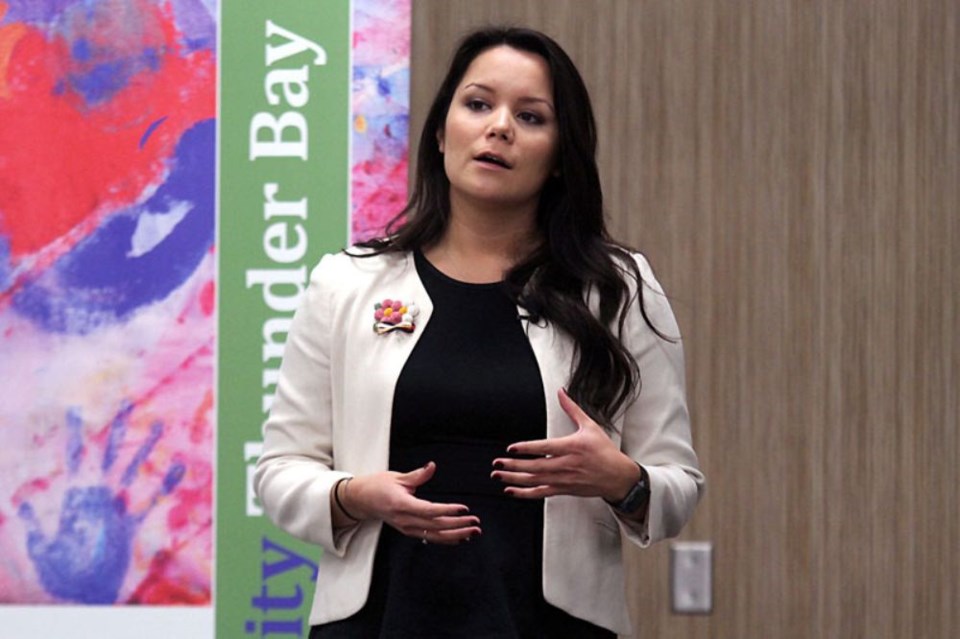Growing up in Saskatchewan, Gabrielle Scrimshaw encountered racism on a near daily basis.
But of all the hate she faced as an Aboriginal woman, one particular incident stands out. She was with a group of people, when a young man who wanted to join the RCMP blurted out he couldn’t wait to become a cop so he could go shoot some “effin' Indians.”
Taken aback and a little ashamed of her heritage, Scrimshaw said nothing.
Later, when her sister pointed out that the person being shot could wind up being her nephew Ethan, Scrimshaw realized the gravity of not speaking up.
“Not only do our actions have consequences, but our inactions as well,” Scrimshaw said on Thursday morning as she addressed a crowd of 400-strong who attended the ninth annual Diversity Thunder Bay anti-racism breakfast.
If one hears something that’s wrong or racist, don’t be afraid to summon the courage it takes to speak out against it, she added.
“That’s the way we start to create change,” she said.
Scrimshaw, the president of the Aboriginal Professional Association of Canada, said there’s never a better time to work toward the elimination of racial discrimination than now.
To do that, a level of understanding between indigenous and non-indigenous communities must be forged.
Racism won’t go away by itself.
“It’s something that’s very real and very alive in our communities and the way we start to eliminate it to start talking about it and moving through that zone of uncomfortable-ness to talk about how we can create better communities.”
Education is another key.
Scrimshaw, who will soon journey to Stanford University to study for a Masters of business administration degree, said 40 per cent of Aboriginal students living off-reserve drop out of school. The number only drops slightly for those living on reserve.
“Education is the new buffalo,” Scrimshaw said, explaining that like the prairie behemoth, learning can provide the basics to help First Nations youth survive in Canada today.
“The window of opportunity is closing,” she said, noting by 2026, the year her nephew turns 20, there will be 400,000 Aboriginals entering the workforce.
“I never want him to face the kinds of things I had to face growing up,” Scrimshaw said.
“My vision for Ethan’s lifeline is something I think is well within reach.”
Also on Thursday, Diversity Thunder Bay doled out its annual Respect Award to the Regional Multicultural Youth Association for its work in the community.
It came as a surprise, said RMCYA president Samantha Smith.
“It was really such a nice gesture on behalf of Diversity Thunder Bay and the anti-racism committee to feel that our group was worthy of this award.”
Smith said in some ways the city is getting more tolerant, but still has plenty of work to do.
While there is good going on, there are other issues that can’t be ignored.
“Especially toward the First Nation’s people in Thunder Bay, and I think that’s something our council has been advocating for, for a really long time. This issue is still there and it’s something that can’t be ignored.”
Sign in or register
- Messages
- Post a Listing
- Your Listings
- Your Profile
- Your Subscriptions
- Your Likes
- Your Business
- Support Local News
- Payment History
Registered Users
Already have an account?
New Users
Create a free account.
